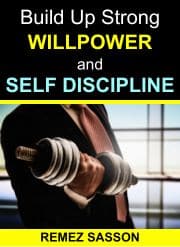
In an ever-changing world, patience isn’t just a skill; it’s a must. It’s not something you’re born with but rather something you learn over time.
Being impatient can cause stress, which affects your physical and mental health.
A practical, powerful guide to using creative visualization to reshape your inner world and transform your life. Discover the Guide
If you try to be more patient than usual, you may likely experience fewer negative emotions and fewer headaches.
Patience makes life simpler since it reduces rage, stress, and frustration. The ability to suffer without becoming annoyed or complaining and to continue doing something despite difficulties is key to fulfilling your dreams and aspirations.
The Importance of Patience in Relationships, Investments and Parenting
If you’re typically impatient or want to learn how to master life, keep reading to understand the importance of patience in relationships, investments, parenting, and more.
Sports and Relationships
The role of patience isn’t exclusively individual but helps you develop healthy, strong, long-lasting relationships and makes your relationships with family, friends, and co-workers thrive.
If you’re taking a moment to analyze the mindset of a martial arts expert, say, Muay Thai, you’ll likely see that they don’t act immediately but wait for the ideal moment to attack the opponent.
Besides being an excellent way to learn self-defense, similar sports teach you to think strategically while staying calm and taking courage in the face of danger, opponents, and stressful situations.
However, cultivating patience in relationships is different than doing so within yourself when you’re standing in a queue, facing the urge to get rid of your long-held investment, or shouting out to someone.
You encounter moments when the people you’re getting in contact with act and think in a potentially disagreeable way. Because no one has the right to obstruct others’ freedom of speech, you must learn to be less reactive and more empathetic.
When someone irritates and annoys you, learn to take a deep breath and remember that their actions are a mere projection of themselves. This is the gift of living through patience, and when you tap into your stillness and peace, you keep your mind from jumping to negative reactions and notions, increasing the quality of your relationships.
Financials and investments
Many are investing and trading nowadays since so many investment options are available, like NFTs, cryptocurrency, stocks, bonds, etc. However, only some traders understand the importance of patience.
Here’s an example of an impatient move. All of your friends own cryptocurrencies, and they’re talking about price charts and fluctuations when you’re hanging out. You feel the urge to invest in a digital currency due to the fear of missing out, so you register on an exchange and check the top crypto gainers.
You’re likely checking the most-traded cryptocurrencies, too, wondering what is the price of Ethereum. When you see the color green near a cryptocurrency, your impatience might tell you to jump and put all of your money into that digital currency in the hope that the wave is going so high that you become rich.
Similarly, if you have the urge to sell cryptocurrencies seconds after buying, even though you’d like to keep them on a longer term, you might be struggling with impatience trading.
Being patient means analyzing your move, deciding on an investment amount you’re comfortable losing, and remembering that cryptocurrency is volatile and common sense is crucial when making any investment.
If you’ve decided to hold a stock for the long term, you shouldn’t let minor details like rumors hinder your mission. Patient investing also means allowing room for mistakes and not expecting to be a master investor immediately.
Self-Development
If you’re struggling with being impatient, don’t sweat it. You can develop the skill of patience with sustained efforts and dedication.
You can find a moment of patience in annoying situations by being considerate and mindful of others’ feelings in uncomfortable, stressful moments. You can also practice gratitude to become a better version of yourself.
Patience touches pretty much any area of your life, from your love life to your work life.
Therefore, it’s essential to understand that patience isn’t transactional, so don’t hold onto the expectation that when you are patient with a person, they should act the same or give you something in return.
Whether you’re going to work or grocery shopping, you can experience the perks that accompany patience. Here are some benefits that mastering patience can bring:
- You focus on your dreams and long-term goals.
- You make more realistic and rational decisions.
- You have a better time learning new skills.
- You develop resilience and resistance.
- You practice and encourage kindness.
Parenting
If you’re a parent, you’re undoubtedly “losing it” from time to time. No one can blame you. However, it’s important to remember that you must take long breaths and let things go when you’re about to hit the roof.
Your child came into this world with zero knowledge about anything, and you’re responsible for helping them learn how to grow. A child can learn a word after hearing it twice, while another has to listen to it 20 times.
Practice the following three tips to keep your emotions in check and respond appropriately, instead of yelling and saying things you regret later.
Identify Your Triggers
Some parents lose their patience when they’re tired, and others when there’s a time constraint.
Parents can even freak out when they’re not conveying the message correctly to their kids. Once you clearly understand when you’re most prone to overreacting, you can move on to step two.
Observe How You Respond to Your Child’s Behavior
Take a moment to observe the feelings you have when you’re triggered. Your heart rate can increase, you might have difficulty breathing, or you may feel too hot and get sweaty hands.
When you’re starting to feel these things, it’s a clear sign you’re about to lose your mind.
Decide How You’re Managing Your Triggers
Step away and take some space when you’re feeling triggered until you’ve calmed down.
Don’t underestimate the power of an apology when you feel like you’ve treated your kid poorly.
“Good things happen to those who wait” is an excellent saying to tell yourself from time to time.
Overall, patience helps you accept failures and move on with your life, allowing you to be more thankful and make better life decisions.

